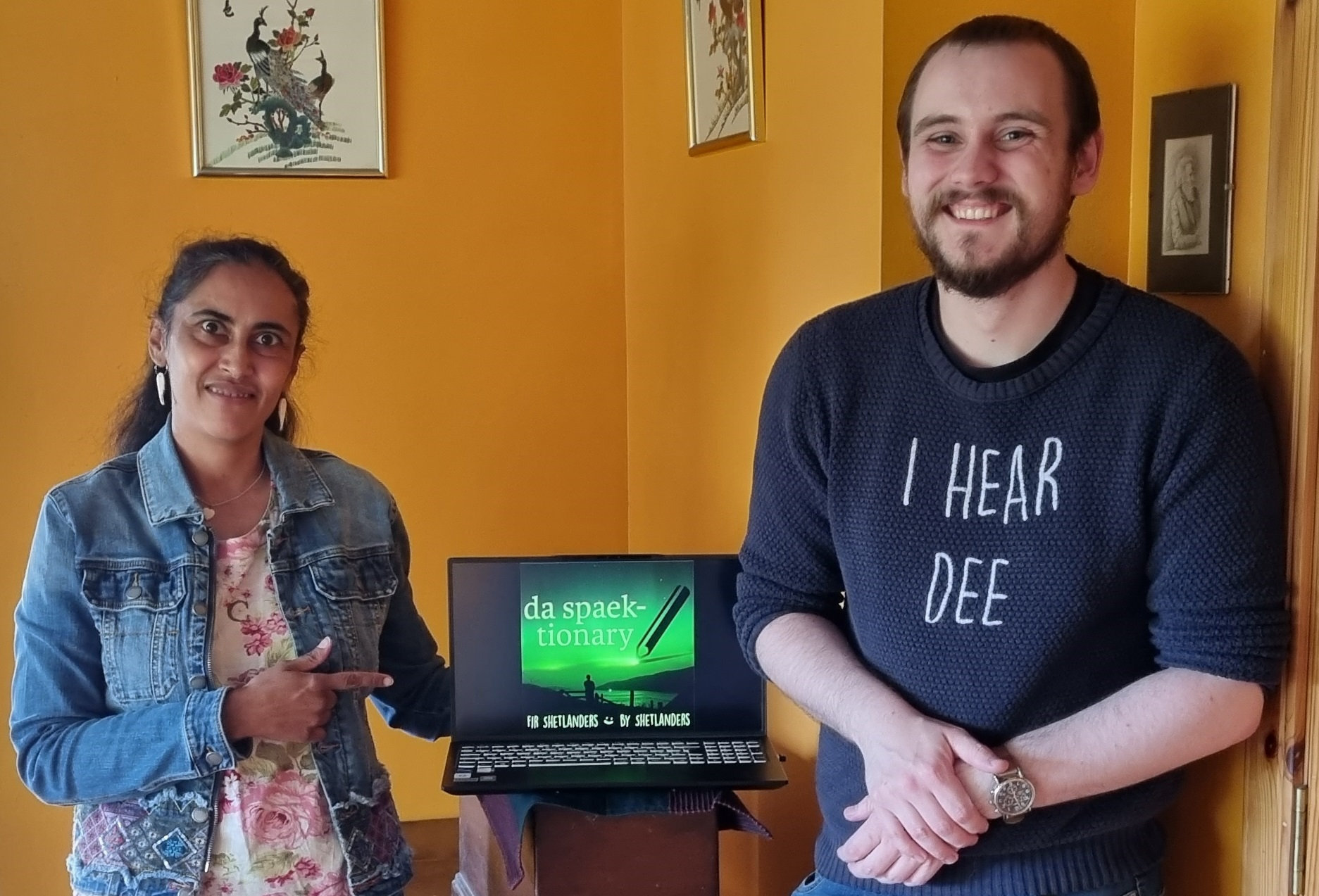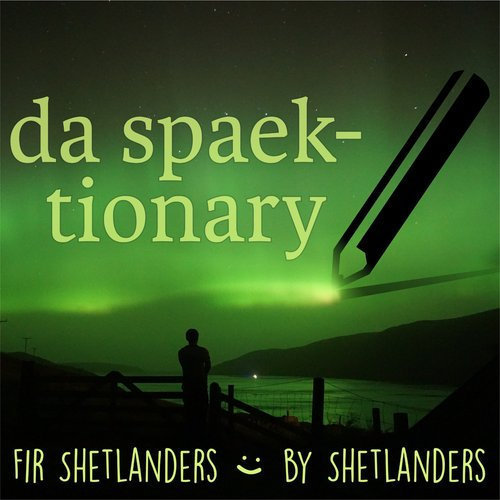
A VARIANT of Scots has been put at the “global forefront” of the push to preserve endangered languages.
The launch of an interactive online dictionary for Shaetlan, the language which predates English on the Shetland archipelago, looks set to act as a model for other vulnerable languages across the world.
Professor Viveka Velupillai, a Shetland-based linguistics expert affiliated with Germany’s University of Giessen, said “Da Spaektionary” aims to give a “representative snapshot of contemporary Shaetlan speech”.
She went on: “A crowdsourced community dictionary like this places Shaetlan at the global forefront of digital language tools, and paves the way for more global recognition of Shaetlan. This will also enhance the safeguarding of the language.
“The code is open-source and available for anyone, which means that other endangered languages can use it to build their own Spaektionary equivalents if they want to.”
Native Shaetlan speaker and software developer James Stewart told the Sunday National he came up with the idea after noticing differences in the way his two grandmothers speak.
He said that while there hadn’t “really been one big aha moment”, a key had been their use of differing words for the fatigue which muscles feel after strenuous exercise.
“My granny on the isle of Whalsay, she would say ‘hansper’, whereas my granny on the isle of Burra would say ‘kreekst’,” Stewart said.
“There’s not one single word in the English language that describes that muscle fatigue you feel after exertion, but Shetland has five. If that kind of difference isn’t recorded, it won’t be possible to record it in 10 years.”
He approached the I Hear Dee project, which is working to preserve and promote the Shaetlan language, and they collaborated on making Da Spaektionary. While Stewart – who now lives in Ayrshire – wrote the code, others submitted ideas for features and content which have been incorporated.
Interest in reproducing the project has already been expressed by linguists in Papua New Guinea, a place of “extreme linguistic diversity”. Professor Craig Volker, from Australia’s James Cook University said they had been “looking for a simple software to give non-linguists who want to make their own dictionaries”.

“If we wait for professional linguists to produce proper dictionaries, half our languages [Papua New Guinea had 851 according to this year’s count] will be extinct before we can get started,” Volker added.
THE development of such software can be expensive, making it “exclusionary”, Stewart says. But Da Spaektionary has been made open-source, meaning anyone around the world can use the code to create their own versions for other languages.
Asked if preserving the world’s endangered languages had been on his mind when creating Da Spaektionary, Stewart said it had not, but he would “love it if it became the blueprint [for that] because it’s important to keep hold of these things”.
Velupillai stressed that Da Spaektionary does not only list words which are unique to Shaetlan, but instead provides a “snapshot of contemporary speech” on the archipelago.
AT its launch, the dictionary had around 8000 entries. These were drawn from the database created by the I Hear Dee project.That database includes the collected entries of four contemporary dictionaries of Shaetlan, as well as 37.5 hours of speech (of around 316,000 words) from oral history recordings provided by Shetland Museum and Archives.
Velupillai said this meant Da Spaektionary was the largest dictionary of Shaetlan since Jakob Jakobsen published, in Danish in 1908, An Etymological Dictionary Of The Norn Language In Shetland. That book listed around 10,000 words.
What’s more, Da Spaektionary is only expected to grow further, as the Shaetlan-speaking community is being encouraged to help “enhance and enlarge” it. This should give people a “sense of community ownership of the language”, Velupillai said.
Submissions to the dictionary will also be mapped, creating a “more nuanced picture of the rich and colourful Shaetlan language than has been available before”.
Since its launch at the end of July, Da Spaektionary has won praise from international bodies including the Endangered Languages Project and SIL International, whose fieldsworks software – a standard tool for language analysis worldwide – has been used to linguistically test and build the Shaetlan dictionary.
Velupillai said that further praise had poured in from her linguistic colleagues around the world, including at prestigious institutions such as MIT in the US, Uppsala in Sweden, Helsinki in Finland, and Stellenbosch in South Africa.
It comes on the heels of other projects from I Hear Dee, including a Shaetlan version of the global hit game Wordle and a world-first primer of the language, which helps outsiders learn the basics of Shaetlan.







